Bacteria are one of the primitive organisms. They were the first forms of life on this earth. They are unicellular, microscopic organisms. Bacteria are found everywhere on this earth including Antarctica. They are present in soil, water, and air. They are present in rivers, lakes, oceans, tissues, animals and plants.
They are either autotrophs or heterotrophs. Autotrophic bacteria prepare food by photosynthesis and chemosynthesis. Heterotrophic bacteria depend on dead animals and plants and lead prasitic way of life.They reproduce asexually by fission, i.e.,they divide into two. They divide very fast.Most of the bacteria need oxygen to live but the rest live actively in the absence of free oxygen and therefore called "anaerobic bacteria".
There are two major types of Bacteria. They are:
i) Certain bacteria are called pathogens as they cause infectious diseases in plants and animals. The diseases spread due to physical contact, air, water etc.
ii) The second type is the friendly bacteria. They are helpful in keeping the diseases at bay. Apart from tackling health problems they help us in tackling environmental problems like pollution.

Bacteria are good cleaning agents as they decompose dead and decayed organisms. They breakdown energy rich organic compounds present in the dead organic matter.They degrade the dead organisms and convert them into energy and nutrients. The degradation of organic matter by the intervention of microbes is called Bioremediation.
Soil dwelling bacteria degrade organic wastes. They degrade organic wastes and convert them into compost fertilizers. When they are used in agriculture, soil becomes rich with bacteria which help the growth of healthy plants thus increasing the productivity.
Bacteria play a vital in converting Nitrogen of the atmosphere into Ammonia. In this process atmospheric nitrogen is made available to the plants through the process of Nitrogen fixation. Bacteria that bring about Nitrogen fixation are: Azotobacter, Rhizobium and cyanobacterium.
Bacteria are effectively used recycling waste water and contaminated water.Dehalococcoides Bacteria, a beneficial one, bioremediate groundwater contaminated with chlorinated solvents. They obtain energy by oxidation of hydrogen gas.Dehalococcoides are unique in the ability to fully reduce chlorinated ethenes and it is a good treatment option for water resources contaminated with the compounds of chlorine.
Digestion of oil spills in oceans:
Digestion of oil spills in oceans:
There are certain bacteria naturally feed on chemicals and other wastes, including some hazardous materials. They consume those materials, digest them, and excrete harmless substances in their place. For example Alcanivorax is an oil degrading marine bacterium abundant in the upper layer of ocean. They are rod shaped, aerobic bacteria, live in colonies. They multiply enormously when petroleum oil is spilled in ocean when shipping it. Alcanivorax become active as the ocean spill provide food for their hunger. They digest the petrol spilled in the ocean and clean up the ocean ecosystem for the survival of marine organisms.
Fuel from Bacteria:
Hotels and restaurants frequently face food waste. They do not have to worry. Food waste is fed to bacteria that thrive in low-oxygen environments. It's called anaerobic digestion, a naturally occurring process of decomposition. Certain type of bacteria turns carbohydrates into simple sugars, amino acids and fatty acids. The second group of bacteria eat those compounds and turn them into hydrogen gas, carbon dioxide, and acetic acid -- the primary component of vinegar. Then a third group of bacteria take those broken-down compounds and turn them into methane and carbon dioxide. Methane gas is produced to the extent of 60-80 percent.Methane gas can be used as fuel for an internal combustion engine that provides electricity.
To degrade Radioactive contamination:
Certain type of Bacteria known as Geobacter bacteria, found in soil are useful in bioremediation. They oxidise metals like iron, radioactive metals like uranium and petroleum compounds. Geobacter has the ability to consume radiations of radioactive metals like uranium and has the capacity to immobilize them and their harmful radiations.
Nylon degrading bacteria:
Flavobacterium is another type of bacteria that is capable of degrading and digesting the toxic byproducts resulting from the manufacture of toothbrushes, surgical sutures, ropes, hosiery and strings for instruments like violins. The toxic byproducts will get carried in the waste water. Flavobacterium will be formed amidst the waste water and digest them so that waste water from the factories is protected from contamination.
To fight global warming:
Methane is a green house gas. Methane gas is produced during all sorts of industrial activities and during natural processes. We have to control the release of methane gas into the atmosphere to contain Global Warming. Certain type of bacteria use copper from the environment to metabolise methane eliminating both methane gas and the poisonous metals at the same time. Methane emissions in factories can also be controlled by using appropriate filters of bacteria in the chimneys.
Sulphuric acid is formed in the chemical factories where sulphur is manufactured. This is a contributing factor to climate change. We can make use of bacteria to degrade the sulphuric acid emissions.
For the production car fuel:
Bacteria TU-103 that lives in the animal dung is capable of degrading news paper to produce butanol. They digest the cellulose present in the paper to produce butanol. Butanol bio fuel has more energy than ethanol. Butanol can be used as a car fuel, without the need to modify the engine design.
The present day problem of our planet is the excessive production and use of plastics.We have not developed efficient the method of disposal of plastics.Here again we can tap the potential of good bacteria. There are bacteria that can digest plastics. Proper research should be undertaken to utilize bacteria to digest the plastic debris in all parts of our planet.
The structure of bacteria is very simple without a nucleus. It is very easy to adjust and re-adjust the DNA component of the cell organelle to get several new types of bacteria. Scientists have to bio-engineer bacteria in the laboratory to produce different types of bacteria to tackle various environmental problems of our ecosystem.
Air pollution is a common problem nowadays. Several health problems are arising due to polluted air. Scientists have to think of alternative methods like bio engineering bacterial stains to fight air pollution and to cleanse the air around us. These bio engineered bacteria will consume dirt and dust ,harmful smokes and emissions and keep the environment clean.
We can also think of air filters for offices and houses with suitable bacteria to harness pure air so that indoor air quality will be improved. Bacterial filters can be fitted to the ventilators. This will reduce the cost of air conditioning and hence save energy. Proper bacterial filters used in huge buildings, apartments etc, can surely reduce Global Warming. Scientists should device an effective technology for developing air filters using bacteria.
Mother Nature has abundant resources. Mankind is growing, advancing and developing.As a result we have paid a reasonably a high cost in terms of ecological disturbance. Man should ultimately check his own environment for the solution to undo his harmful actions. More research has to be undertaken with respect to tackling environmental problems using friendly bacteria.If we know to tap the potential of Eco Friendly Bacteria wisely, our rich bio- diversity will enjoy harmonious living. Eco Friendly Bacteria are bio weapons to tackle environmental problems.




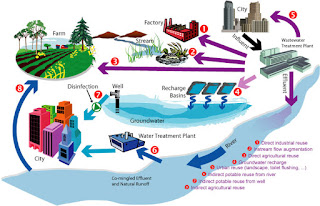

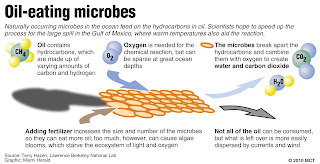
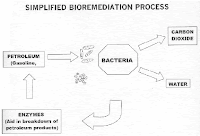
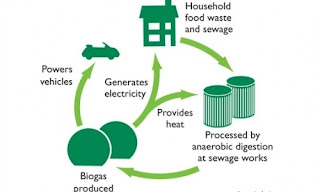



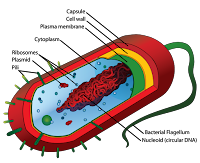
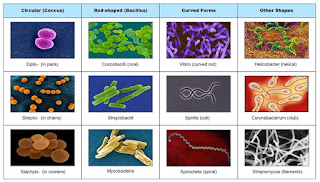


Add a comment